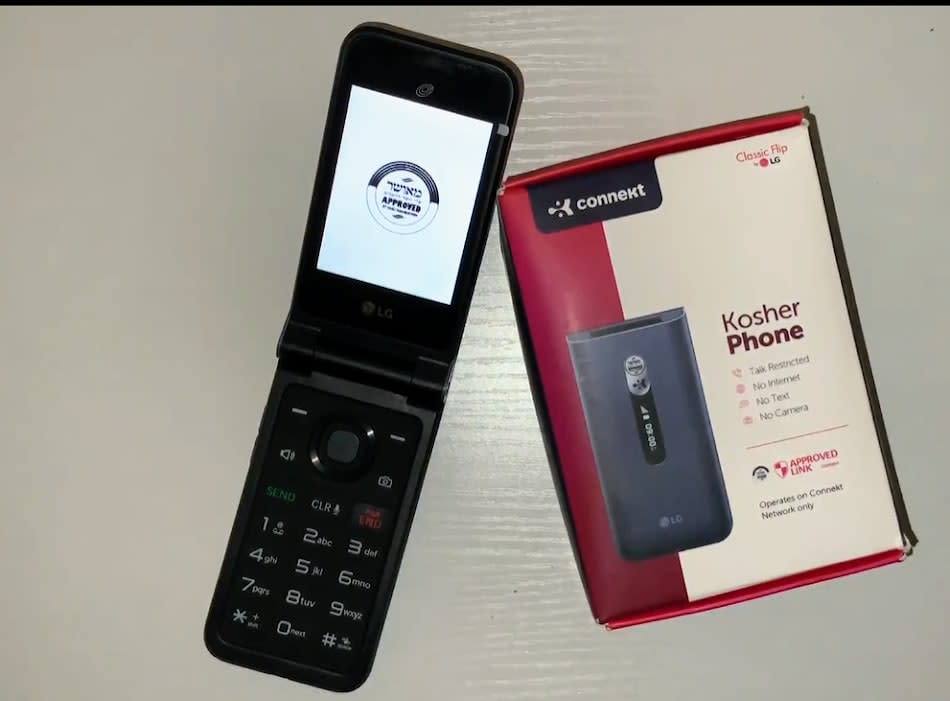As a millennial elder, I got my first cell phone during my senior year of high school. I still remember the novelty of discovering how easy and seamless it was to connect with people and download apps. Back then, no one fully understood how addictive these technologies were.
Today, smartphone addiction is widely recognized, and most people I know are actively trying to minimize screen time and protect their children from the highly addictive nature of technology. However, around the world, ultra-orthodox Jews have consistently refrained from adopting smartphones as a community and maintain a cautious approach to internet use.
Ultra-orthodox groups are relatively isolated and are characterized by their strict adherence to Jewish law, especially those concentrated in Israel and America but also found in various countries such as Australia, Canada and England. They have chosen to avoid the internet and smartphones, and consider these technologies too addictive and incompatible with their normal lifestyle.
“I’m a native New Yorker, but I haven’t seen any movies on September 11,” Frieda Vizel told The Daily Beast. She is a 39-year-old woman who grew up as part of the ultra-orthodox Satmar community in New York but chose to leave that life more than ten years ago. “The film was not completely accessible to me [in my community].” She grew up in the Hasidic Jewish town of Kiryas Joel in New York, where she had no access to screens or television.


Frieda Vizel works as a tour guide for people curious about Hasidic Jews in New York, she remembers when phones started popping up in her ultra-orthodox Jewish community.
Frieda Wizel
Resistance to the adoption of smart technologies emerged gradually. During the early 2000s, with technological advances, some within the ultra-orthodox community began buying some of the earliest versions of smartphones such as Blackberries. Vizel, who runs a popular YouTube channel that explains many aspects of ultra-orthodox Jewish life and works as a tour guide for people curious about Hasidic Jews in New York, remembers this early period vividly.
“After I got married [in the early 2000s], I had a mobile phone. Everyone in the community bought one,” she recalled.
The technology was very popular and eagerly accepted. However, the rabbis soon realized that controlling smartphones, with their rapidly advancing features and fast internet speeds, would be challenging and could endanger the community’s way of life. To combat this risk, smartphones were banned, and a new approach emerged: “kosher” phones.
There are usually two types of Kosher phones, which are often endorsed by rabbis for public use. They can be extremely simple phones with minimal features, such as basic calls and no internet, while others are smart devices retrofitted with filters that designated individuals within the ultra-orthodox community can update and installed at the time of purchase. These filters guarantee that no distraction or app that contradicts the expectations of the ultra-orthodox lifestyle is allowed.


Kosher phones can be extremely simple phones with minimal features, such as basic calls and no internet, while others are smart devices retrofitted with filters that designated individuals within the ultra community can update and install orthodox at the time of purchase.
Frieda Wizel
While pornographic websites are obviously blocked, other less benign websites like YouTube or apps like Spotify may be limited due to their perceived incompatibility.. The filters are customizable and can be modified on special request to include apps or browser access that is necessary for business or school purposes.
“When I first heard about them, I started thinking, ‘Is this going to be noticed? Are they going to get people to turn in their smartphones and get people to buy these basic phones?” said Vizel.
A quick walk around any ultra-orthodox Jewish compound anywhere in the world will show that the smartphone ban has been a resounding success.
“It worries me to see the success rate. In Hasidic Williamsburg, you see kosher phones everywhere and you rarely see a smartphone,” Vizel said. “I saw this happening in real time, and I thought it was impossible.”
In contrast to the ubiquitous online presence in today’s hyper-connected world, the ultra-orthodox community follows a different approach. Adults may have access to internet devices for work or study, although there are restrictions and filters and they are not online all the time. Access is never granted to children under the age of 18.
“Smartphones and the internet are taken for granted,” Vizel said. However, they “try not to let it into their lives,” and don’t accept the “overly addictive smartphone culture.”
Interestingly, Vizel gets frequent recognition and views from members of her former community, who have obviously been watching her videos on YouTube, perhaps with a filter like KosherTube, which ensures content that is viewable and suitable for ultra-orthodox members. Jewish community.
“I have a lot of viewers on my YouTube channel who are Hasidic,” she said. “But a lot of them don’t have smartphones.”
How Orthodox Jews Get Through the Sabbath in Our Tech Dystopia
Although kosher phones are widely used in ultra-orthodox communities, it does not necessarily lead to lower levels of addiction. Technology can be very attractive even with the limited filters and features.
“People can call hotlines and listen to the news, and people are cool about that,” Vizel said. “One of the ubiquitous sights in Williamsburg is that people are glued to their phones. […] Kosher phones are addictive but in a different way.”
Placing restrictions on internet access also has disadvantages. Leah Boulton is the founder and CEO of Pathways Melbourne, a group dedicated to supporting ultra-Orthodox Jews who are questioning their lifestyle, practices and beliefs. She told The Daily Beast that technology has created numerous challenges.
For one, the use of kosher phones can complicate the process of challenging one’s faith, as filters may block access to supportive websites and hinder access to essential information. “A lot of times when we start talking to people, they’ve managed to access some form of internet,” she said. “Last year, we had a young man with two SIM cards. He had one kosher and one non-kosher. It was very difficult to contact him.”
Boulton does not condemn anyone who uses a kosher phone. It is their individual choice. However, it results in a more limited worldview. “And this controls the risks that questioning can bring.”
There are also safety concerns. While imposing restrictions on yourself and family members can provide mobile phone users with a sense of control, issues arise when wider access to the world is needed, making kosher phones a significant concern. . “If a child or adult is in an unsafe family environment, kosher phones don’t provide many ways to see that what they are experiencing is unacceptable,” Boulton explained.
Despite some of the drawbacks, adopting a simpler lifestyle with a kosher phone still excites Vizel – especially when she sees ultra-orthodox children enjoying life without being tethered to an iPad or phone clever.
“The community’s success in keeping children off social media and the internet depends on them all being in the same situation,” she said. “If your child is bored there are other children [who are] bored and I want to play with them. These kids have something special. It’s almost impossible to replicate.”
Read more at The Daily Beast.
Get the Daily Beast’s biggest scoops and scandals delivered straight to your inbox. Sign up now.
Stay informed and get unlimited access to The Daily Beast’s unmatched reporting. Subscribe now.